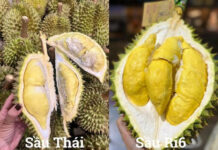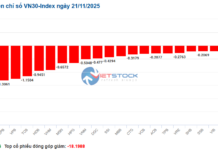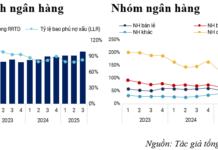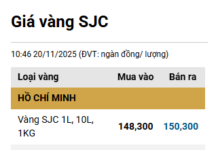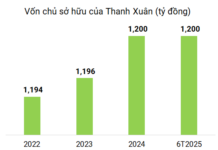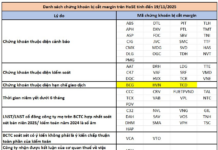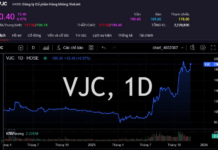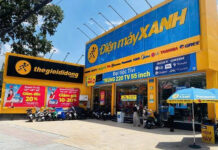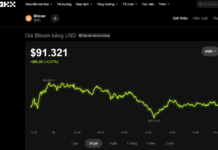Exclusive Gold Bar Privileges: Can SJC’s Profits Rise?
Effective May 25, 2012, Decree 24 on gold business management came into force. The decree designated the State Bank of Vietnam as the organizer and manager of gold bar production. Saigon Jewelry Company Limited (SJCL) was chosen as the national gold bar brand.
The State Bank of Vietnam organized gold bar production by hiring SJCL for manufacturing. At that time, the State Bank asserted that choosing the SJC gold bar brand did not create a business monopoly as SJCL would no longer directly produce gold bars. Instead, they would focus on trading gold bars and producing and trading jewelry, arts, and crafts like other permitted enterprises.
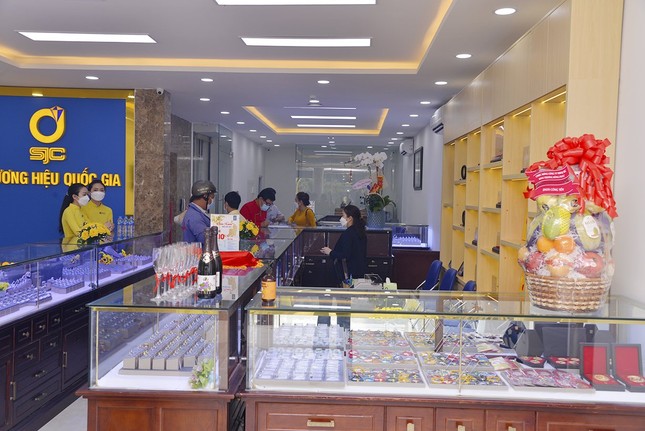
Saigon Jewelry Company Limited has only been profitable in the last six years after being the exclusive gold bar enterprise.
According to SJCL’s recently published 2023 business results, the company recorded a slight 4% increase in net revenue compared to 2022, rising from over VND 27,150 billion to over VND 28,400 billion. Their pre-tax profit and net profit for 2023 increased by 27% and 24%, respectively, compared to 2022, amounting to VND 87.5 billion and VND 61 billion. Thus, SJCL’s net profit for 2023 exceeded the set business plan by 7%, while revenue fell short by 5.8%.
However, at a recent regular press conference on Ho Chi Minh City’s socio-economic situation, Le Thuy Hang, CEO of SJCL, shared that before 2012 – when Decree 24 on the gold bar monopoly had not been issued – the company’s capital ownership was VND 400 billion, but their net profit ranged from VND 300-400 billion per year. Since 2012, their profits have plummeted to just several billion dongs.
As SJCL could no longer produce gold bars, they shifted their focus to jewelry, primarily profiting from this segment. Initially, their jewelry line faced challenges and struggled to compete, only turning a profit in the last six years.
PNJ’s Record-Breaking Profits
According to the first-quarter business results report this year, Phu Nhuan Jewelry Joint Stock Company (PNJ) achieved an impressive 29% year-on-year surge in net revenue, reaching VND 12,594 billion. This marks the highest quarterly revenue in the history of this jewelry retailer.
Notably, PNJ’s revenue from 24K gold (also known as 999.9 gold) witnessed a remarkable 66% year-on-year increase, driven by heightened demand during the recent God of Wealth Day.
After deducting all expenses incurred in business operations, PNJ earned VND 738 billion in net profit for the first quarter of this year, a slight 1.4% dip compared to the same period in 2023. Nonetheless, this figure surpasses the fourth quarter of 2023 by 17%.
For 2024, PNJ aims for a net revenue of VND 37,148 billion and a net profit of VND 2,089 billion, representing a 12% and 6% year-on-year increase, respectively. Should they accomplish these targets, the company will establish a new record-high profit.
With the results attained in the first quarter, PNJ has fulfilled 34% of its annual revenue plan and 35% of its annual profit plan.
Surprising Profits of Bao Tin Minh Chau
For several months, Bao Tin Minh Chau Joint Stock Company, located on the famous “gold street” of Tran Nhan Tong in Hanoi, has witnessed long queues of people buying gold.
Bao Tin Minh Chau has a charter capital of VND 100 billion, with Mr. Vu Minh Chau holding 90.17% of the shares, contributing VND 90,170 billion, and Mr. Vu Phuong Nam holding the remaining 9.83% with a contribution of VND 9,830 billion.

Long queues are a common sight at Bao Tin Minh Chau, yet the company declares meager profits.
In 2023, Bao Tin Minh Chau’s revenue from sales and services reached VND 1,401 billion, a substantial increase of VND 332 billion, or 31.1%, compared to 2022. However, their net profit was only VND 4.5 billion, a mere VND 400 million, or 9.8%, higher than the previous year.
This is not the first year that Bao Tin Minh Chau has reported weak net profits. Previously, these figures were VND 4.1 billion in 2022, VND 2 billion in 2021, and VND 3.1 billion in 2020.
Evidently, Bao Tin Minh Chau’s capital usage efficiency is extremely low. Their net profit margin, calculated as net profit after tax divided by owner’s equity, was only 4.32% in 2023, 3.9% in 2022, 1.96% in 2021, and 3.1% in 2020.
Alarmingly, Bao Tin Minh Chau’s profit margin is even lower than the bank deposit interest rate at its lowest point.
Established in 1999, Bao Tin Minh Chau has been operating for almost 30 years. Yet, their owner’s equity is only VND 104 billion, despite a charter capital of VND 100 billion.
Doji Group’s Massive Revenue but Slim Profits
Despite its remarkable revenue growth in the field of gold, silver, and gemstone trading, outperforming many competitors, Doji Group lags in profit growth compared to other giants in the gold industry.
Founded by Mr. Do Minh Phu, Doji Group operates in various sectors, including gold, silver, and gemstone trading; jewelry, real estate, investment, and trade services. In the financial and banking sector, Mr. Do Minh Phu serves as the Chairman of the Board of Directors of Tien Phong Bank.
Hundreds of branches, business centers, agencies, and jewelry sale points nationwide bring Doji Group tens to even hundreds of billions of dongs in revenue annually. Nevertheless, their profits are relatively slim.
According to the latest report, Doji Group’s net profit for 2023 exceeded VND 490 billion, equivalent to approximately VND 1.3 billion per day, a decrease of about 50% compared to the VND 1,017 billion recorded in 2022. Despite this decline, the profit is still significantly higher than the nearly VND 240 billion in 2021 and the VND 150 billion and VND 187 billion in 2019 and 2020, respectively.
As of the end of 2023, Doji Group’s owner’s equity exceeded VND 6,745 billion, a 6% increase compared to the previous year. Their debt-to-equity ratio was 2.35, higher than the 1.95 ratio at the end of the previous year.
Consequently, the group’s total debt is estimated to be over VND 15,850 billion, a 27% increase compared to the end of the previous year. The company no longer has bond debt, having repaid VND 636 billion by the end of 2022.

